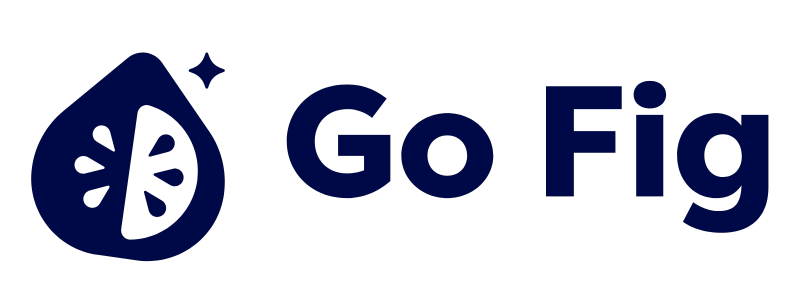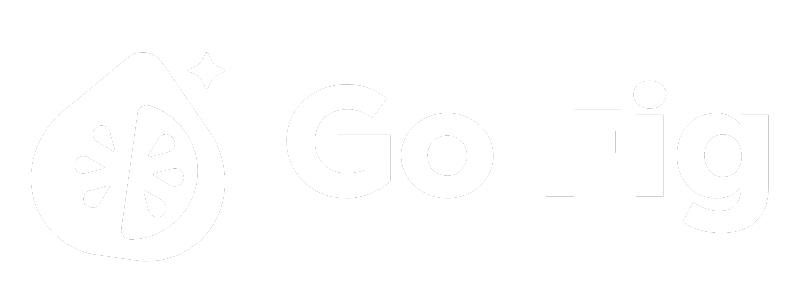Overview
Projects in Go Fig are private workspaces containing workflows, dashboards, tables, and connectors. By default, projects are private—only you can access them. Project sharing allows you to grant specific team members access to collaborate. Key Concepts:- Private by Default: New projects only accessible to creator
- Granular Permissions: Assign Viewer, Editor, or Owner roles
- Flexible Access: Add/remove users and change permissions anytime
- Project-Level Sharing: Grants access to ALL content within project
Sharing a project grants access to ALL content within (workflows, dashboards, tables, connectors). For sharing dashboards publicly or exporting them, see Dashboard Sharing.
Project Permission Levels
| Permission | View Content | Edit Content | Create Assets | Manage Sharing | Delete Project |
|---|---|---|---|---|---|
| Viewer | ✅ | ❌ | ❌ | ❌ | ❌ |
| Editor | ✅ | ✅ | ✅ | ❌ | ❌ |
| Owner | ✅ | ✅ | ✅ | ✅ | ✅ |
Viewer
Purpose: Read-only access for stakeholders who need visibility without editing rights. Can Do: View content, run workflows, apply dashboard filters, export data, add comments Best For: Executives reviewing dashboards, stakeholders validating analysis, external auditorsEditor
Purpose: Full collaboration access for team members actively working on the project. Can Do: Everything a Viewer can do, plus edit workflows/dashboards, create new assets, configure connectors Cannot Do: Share project, change permissions, transfer ownership, delete project Best For: Data analysts collaborating on workflows, dashboard designers, active contributorsOwner
Purpose: Full administrative control over the project and its sharing. Can Do: Everything an Editor can do, plus share project, change permissions, transfer ownership, delete project Ownership Rules:- Every project has exactly one Owner
- Ownership can be transferred to another user
- Previous Owner becomes Editor automatically after transfer
- If Owner leaves organization, ownership transfers to team admin
How to Share a Project
1
Open project settings
Navigate to project and click Share button in top-right corner, or ”•••” → “Share Project”.
2
Invite users by email
Enter team member’s email address, select permission level (Viewer, Editor, or Owner), optionally add a personal message, and click “Send Invitation”. User receives email notification with direct link to project.
3
Manage existing users
Change Permissions: Click role dropdown next to user to change permission levelRemove Access: Click ”×” to revoke user’s accessResend Invitation: Click “Resend” if user hasn’t accepted
Bulk Sharing
For projects with many collaborators:1
Open bulk share dialog
In sharing dialog, click “Bulk Add Users”.
2
Add multiple users
Enter multiple email addresses (one per line or comma-separated) and assign default permission level.
3
Confirm
Review users and click “Confirm” to send all invitations at once.
Managing Project Access
Changing User Permissions
1
Open sharing dialog
Click Share or Manage Access on project.
2
Update permission
Find user in “Shared with” list and click their permission dropdown. Select new permission level.
3
Save
Click “Save”. User receives notification about updated access level.
Removing Users
1
Open sharing dialog
Click Share or Manage Access on project.
2
Remove user
Find user and click ”×” or “Remove” button.
3
Confirm
User immediately loses access and receives notification. Project disappears from their “Shared with Me” list.
Transferring Ownership
1
Open transfer dialog
As current Owner, navigate to project and click ”•••” → “Transfer Ownership”.
2
Select new owner
Choose user to transfer ownership to. They must already have project access (Editor or Viewer).
3
Confirm transfer
Review implications:
- New user becomes Owner with full administrative control
- You become Editor (retain access, lose ownership privileges)
Finding Shared Projects
Viewing Projects Shared with You
Navigate to Projects → Shared with Me tab to see all projects shared with you. Filtering:- Filter by permission level (Viewer, Editor, Owner)
- Filter by owner who shared with you
- Search by project name or description
Accepting Project Invitations
When someone shares a project with you:- Receive email invitation with direct link
- Click link to view project details
- Click “Accept Invitation” to access project
- Project appears in “Shared with Me” section
Project Sharing vs. Publishing
| Aspect | Project Sharing | Publishing to Team Pages |
|---|---|---|
| Visibility | Specific invited users only | All team members |
| Scope | Entire project (all contents) | Individual dashboards/workflows |
| Access Type | Customizable (Viewer/Editor/Owner) | View-only (read-only) |
| Use Case | Collaborative work on projects | Broad distribution of final analysis |

